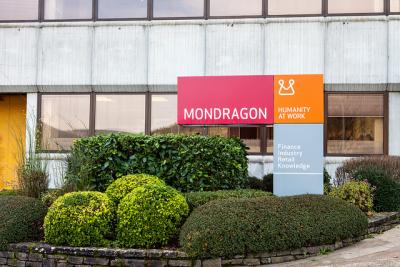 Gar Alperovitz and Thomas Hanna recently commented on Mondragon's Fagor Electronics co-op's filing for bankruptcy (click here for the Mondragon Announcement). Gar (Leonard R. Bauman Professor of Political Economy at the University of Maryland and author of What Then What Must We Do? (2013) and many earlier works) and Thomas (a senior research associate at the Democracy Collaborative) wrote an analysis of the situation for Truth-Out (the main link). Their analysis is an important contribution to our understanding of the role of co-ops in national and global economic and political systems. However, they stop short, in this brief essay, of a deeper analysis of the problems facing enterprises (co-ops or otherwise) in the "global free market", dominated by corporate entities with deep State and Trade NGO support.
Gar Alperovitz and Thomas Hanna recently commented on Mondragon's Fagor Electronics co-op's filing for bankruptcy (click here for the Mondragon Announcement). Gar (Leonard R. Bauman Professor of Political Economy at the University of Maryland and author of What Then What Must We Do? (2013) and many earlier works) and Thomas (a senior research associate at the Democracy Collaborative) wrote an analysis of the situation for Truth-Out (the main link). Their analysis is an important contribution to our understanding of the role of co-ops in national and global economic and political systems. However, they stop short, in this brief essay, of a deeper analysis of the problems facing enterprises (co-ops or otherwise) in the "global free market", dominated by corporate entities with deep State and Trade NGO support.
The authors rightly point out that Mondragon has never set itself to influencing the National economic policies of Spain and has tried to compete on the merits of its products and services. Fagor Electronics's larger competitors, however, routinely influence (or are owned by) "their governments" and wield enormous influence with the State and NGO Trade community. That influence routinely provides regulatory and taxation advantages with which it is hard for an "outsider" to compete.
It is an issue of scale. If your enterprise seeks to capture market share that is perceived to impinge on the "divine right" of one or more of the corporate global elite, your business faces these headwinds that give the elite an advantage. It is also an issue of reach. The desire to compete in broader markets drives brand-building and distribution costs and complexity up. Such infrastructure and experience is readily in place for the elites who manage broad portfolios of brands and complex distribution systems with enormous global brand loyalties. The marginal costs for a global elite are modest, for an entrant, daunting.
The global recession or depression is being felt at virtually all levels of industry and commerce (the puffery aside). Fagor was not the victim of some corporate elite attack or conspiracy. It was just one of the more vulnerable competitors. Mondragon has the breadth of internal opportunity and the depth of experience to resolve this failure, if it turns out that this bankuptcy results in the co-op's failure, more rationally with better outcomes for the effected workers. But, we should be looking at the differences in the experiences of Mondragon and the Emiglia Romagna co-ops for guidance in business strategy. And we should be following Gar's and Thomas's lead in thinking through the systems implications.

Add new comment